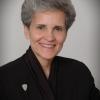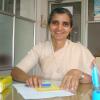GSR Today - Sometimes it's the dropping of an almost casual reference that really brings something home to you. That's what happened when I read Ana Zivkovic's Friday blog for Caritas.
Contemplative Communities profile one - On the Lititz Pike just outside of Lancaster, Pennsylvania, traffic thunders in a constant stream, pouring off one of the highways that merge nearby. In a parking lot set back from the road, a red brick building and 1950s-vintage chapel sit side-by-side, unremarkable in an area still notable for religious observance. Two signs with the word “monastery” on them give the visitor an indication that this is the home of the Cloistered Dominican Nuns of the Perpetual Rosary, who have been a presence here since 1952. Their mission is not only a special devotion to the rosary, but a commitment to incorporate the needs of the world into their prayers.
Contemplative Communities series introduction - They live on islands and in forests, behind churches on busy highways and among working-class homes on urban streets. Obedient to a discipline of prayer almost as old as Christianity itself, contemplative nuns in the United States may seldom visit the world that bustles outside their doors — but are often called first for prayer when there is a personal or global tragedy. Who are contemplatives in the United States? This week, Global Sisters Report takes a closer look at contemplative communities in a six-part series.
"When we love, we always strive to become better than we are. When we strive to become better than we are, everything around us becomes better too."
As I sat and reflected on the few days the pope spent in the United States, with all that he did and shared, and the two days, in particular, that we were treated to his presence in Philadelphia, I couldn’t believe how significant the time had been. Seeing him go was like the Ascension; I was sad, but I also knew that what I’d experienced wasn’t over. Francis left a spirit that needs to be kept alive.
“Heaven is under our feet as well as over our heads.”
See for Yourself - On a recent gorgeous weather Sunday afternoon, friend Ann and I met at an overlook park for a picnic lunch and some long-overdue catching up. The bench we selected at this urban park was on a high plateau with a vista of a busy river far below, interesting structures across the river, and lush foliage bringing a rural feel into this town-area setting.
The Daughters of Charity of Saint Vincent de Paul work closely with the numerous ethnic groups in the Dak Lak province of central Vietnam. To do this, they walk a tightrope of diplomacy with the government, which exercises strict control over the province for fear that “reactionary forces abroad incite ethnic groups to fight against the government.” The community of eight nuns in their 30s and 40s carry on the work with ethnic groups, which their order has done since the 1950s.
Sr. Pooja Kollamparambil 42, is coordinator of the Nagpur Multipurpose Social Service Society, an NGO managed by the archdiocese. For three years, she ran a project for people with HIV, and when the project was completed in 2011, she started Asha Kiran (Rays of Hope), a center for children of people living with HIV/AIDS, and the program recently got a new house for the 15 children she currently serves.
GSR Today - The issue of food and hunger is at the center of much of the story of contemporary Bangladesh. That is worth a reflection today on World Food Day, when the international community commemorates the creation of the Food and Agriculture Organization of the United Nations in 1945.





